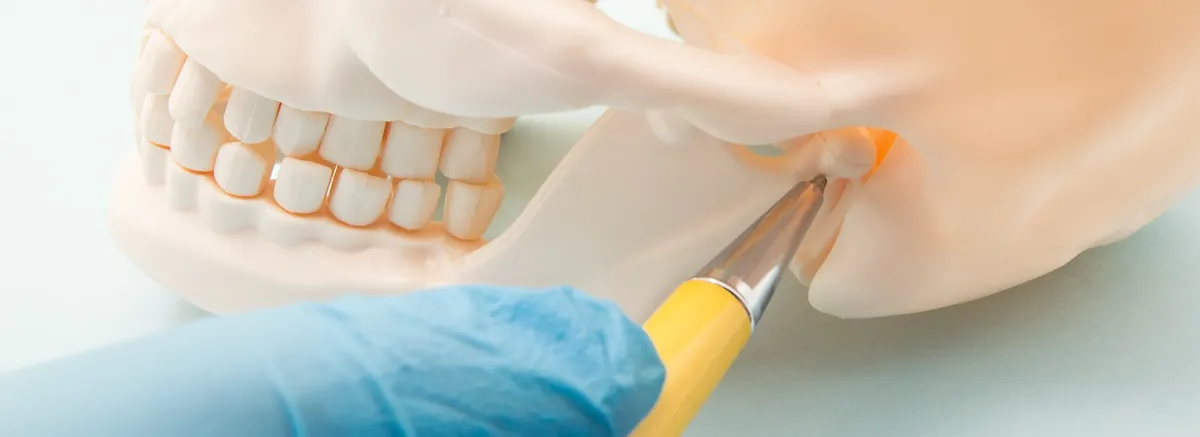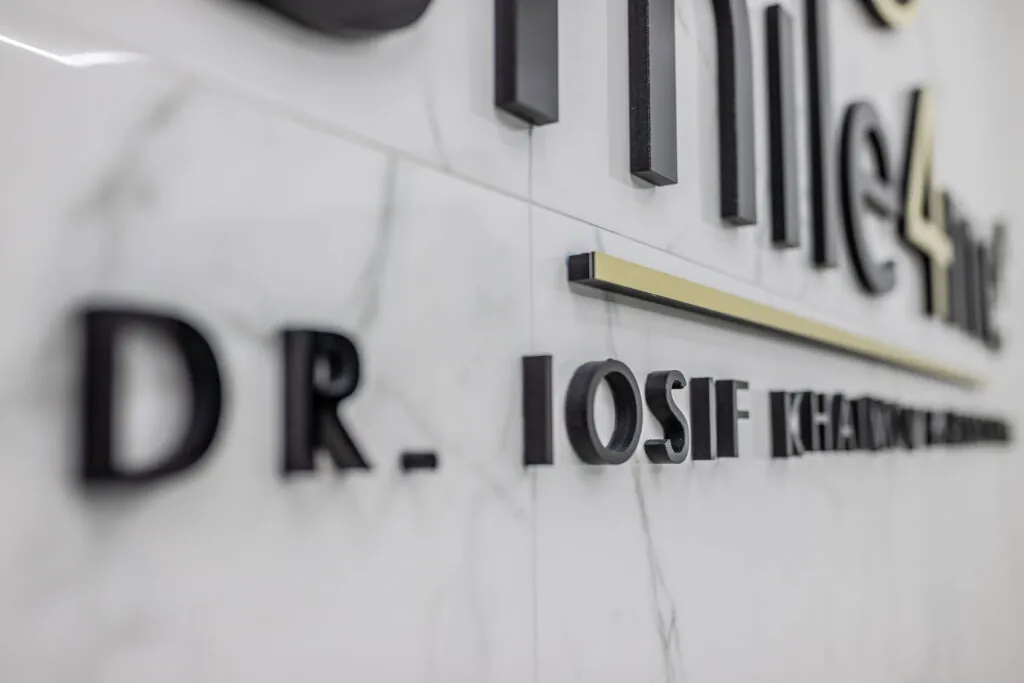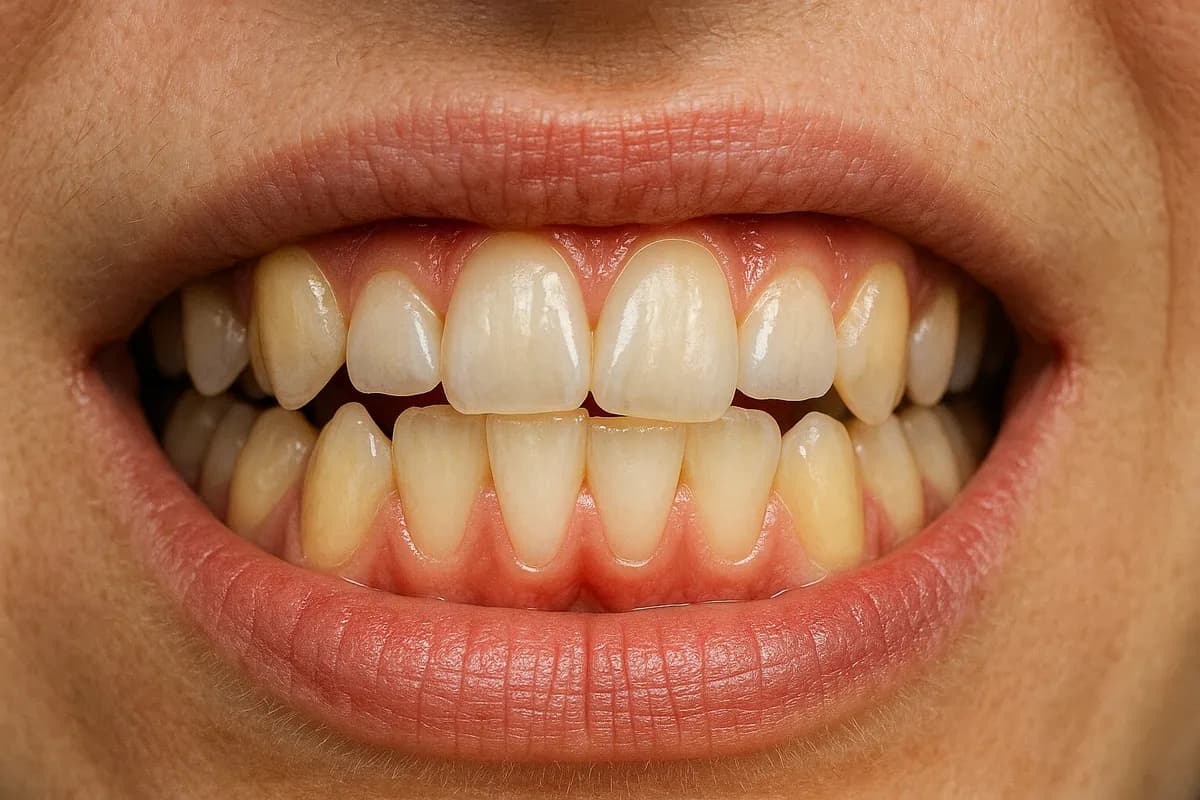Studies show that crossbites affect up to 16% of children and can persist into adulthood if untreated, often leading to jaw pain, worn teeth, or gum problems. With numbers like that, it’s no surprise so many people ask: Can Invisalign fix a crossbite? The good news is that treatment has come a long way! When comparing Invisalign vs braces, many cases that once required bulky metal brackets can now be treated with clear, removable aligners that fit seamlessly into your lifestyle.
Whether it’s a single front tooth out of place or a few back teeth sitting inside the lower jaw, aligners can often correct the bite without the hassle of brackets and wires. For moderate cases, Invisalign may even be combined with small attachments, elastics, or expanders to give the teeth more support during movement. But, more complex bite issues involving jaw structure may still require traditional braces or even surgical options. The key is a thorough evaluation to determine if your crossbite is tooth-related, jaw-related, or both.
In this blog, we’ll explain what a crossbite is, why it matters, and whether Invisalign can help. We’ll also share how Smile4Me Dental Care, a trusted dentist in Astoria, provides personalized Invisalign treatment to create healthy, confident smiles.
What is a Crossbite?
A crossbite is a type of dental misalignment where some of the upper teeth sit inside or directly on top of the lower teeth instead of slightly overlapping them as they should. It can affect one tooth or multiple teeth and may occur in the front, the back, or both areas of the mouth. Crossbites are considered a form of malocclusion and, if untreated, can lead to issues such as jaw pain, abnormal tooth wear, gum disease, and even facial asymmetry over time. While genetics often play a role, childhood habits and irregular tooth growth can also cause crossbites.
What Are Posterior and Anterior Crossbites?
Posterior crossbites occur in the back of the mouth when the upper jaw is narrower than the lower jaw, causing the upper teeth to bite inside the lower teeth. This can happen on one side of the mouth (unilateral) or both sides (bilateral), and it often leads to chewing difficulties or jaw strain.
Anterior crossbites, on the other hand, affect the front teeth, where one or more of the upper teeth sit behind the lower front teeth. In more severe cases, this resembles an underbite, which can impact appearance, speech, and bite function. Both posterior and anterior crossbites vary in severity, and treatment depends on whether the problem stems from the teeth, the jaw, or both.
Why Crossbites Should Be Treated

A crossbite is more than a cosmetic issue; it can affect the way your teeth, gums, and jaw function on a daily basis. When left untreated, crossbites often lead to uneven pressure, wear, and strain that cause long-term problems for both oral health and overall comfort. Over time, these issues can become more complex and expensive to correct, making early treatment necessary. Here are the main reasons why addressing a crossbite matters and the complications it can cause.
Tooth Wear and Damage
When your bite doesn’t align properly, teeth often make contact in places they aren’t meant to. This uneven pressure leads to chips, cracks, and accelerated wear that weakens enamel. Over the years, the teeth can flatten or even fracture, leaving them more vulnerable to sensitivity and decay. By correcting a crossbite, you protect the strength and longevity of your natural teeth.
Jaw Pain and TMJ Issues
A misaligned bite places extra stress on the muscles and joints that guide your jaw. This strain can lead to frequent headaches, jaw stiffness, and pain that radiates into the neck or shoulders. In many cases, it develops into temporomandibular joint (TMJ) disorder, a condition that causes chronic discomfort and difficulty opening or closing the mouth. Treating a crossbite relieves this unnecessary stress and helps restore balance to the jaw.
Gum and Bone Problems
Crossbites can also take a toll on the gums and supporting bone around your teeth. Because the bite isn’t balanced, certain areas of the gums may recede, exposing the roots of teeth. Over time, bone loss can occur, which increases the risk of loose teeth and gum disease. Correcting the bite alignment reduces these risks and helps maintain strong, healthy gums.
Chewing and Speech Difficulties
When teeth don’t meet the way they should, chewing can become less efficient and even uncomfortable. This can make it harder to break down food properly, which sometimes leads to digestive issues. Crossbites can also interfere with the way air flows through the mouth, affecting speech clarity and pronunciation. Treating the problem restores proper function, making eating and speaking more effortless and more natural.
Can Invisalign Fix a Crossbite?

Wondering, “Can Invisalign fix crossbites?” In most mild to moderate cases, the answer is yes. Clear aligners work by applying steady, controlled pressure to move teeth into healthier positions, whether it’s an anterior crossbite (front teeth) or a posterior crossbite (back teeth). They are especially effective when the issue is caused by tooth position rather than major jaw misalignment. More complex situations, such as a severe crossbite, may require additional help—like elastics, expanders, or even jaw surgery—but Invisalign often plays a key role in the overall treatment plan.
How Long Does It Take?
The time it takes to fix a crossbite with Invisalign depends on the severity of the case. Mild cases may see improvements in as little as 3-6 months, while moderate to severe cases can take 12-18 months or longer. Each set of aligners is usually worn for 1-2 weeks before moving to the next, and progress is checked during regular dental visits. So, can you fix a crossbite with Invisalign? Yes, but consistency is crucial! Wearing aligners 20-22 hours per day ensures the best and fastest results.
How Smile4Me Dental Care Offers Quality Invisalign Treatment in Astoria

At Smile4Me Dental Care, we understand that correcting a crossbite is about more than just straightening teeth; it’s about restoring comfort, confidence, and long-term oral health. Our Invisalign process begins with advanced 3D digital scans to map out a personalized treatment plan tailored to your bite and smile goals. Throughout treatment, we provide regular check-ins to ensure your aligners are working effectively and to make any needed adjustments.
With the expertise of the leading Astoria Invisalign dentist, Dr. Iosif Khaimov, patients in Astoria can expect professional care in a comfortable, supportive environment. From start to finish, our goal is to make Invisalign treatment simple, effective, and stress-free.
Why Patients Choose Us
Patients across Astoria choose Smile4Me Dental Care because we combine professional expertise with personalized care and modern technology. We understand that every smile is unique, so our approach is always tailored to your specific needs and goals. From your first consultation to your final retainer, our focus is on making treatment smooth, effective, and stress-free.
Here’s what sets us apart:
Advanced Technology: We use digital imaging and precise treatment planning to ensure predictable results. Our 3D scans let you preview your smile transformation before treatment even begins.
Comfort-Focused Care: Our team creates a relaxed, supportive environment so patients feel at ease during every visit. We take time to explain every step of the process, so you always know what to expect.
Flexible Financing: We offer payment options, including no-interest plans, to make treatment affordable and accessible. No matter your budget, we’ll work with you to ensure cost doesn’t stand in the way of your smile.
These advantages make Invisalign treatment at Smile4Me both effective and convenient. With our patient-first approach, you can feel confident that your smile is in trusted hands from your first consultation to your final aligners—and beyond, as we help you maintain your results for years to come.
Conclusion: Can Invisalign Fix Crossbites?
So, can a crossbite be fixed with Invisalign? In most mild to moderate cases, the answer is yes. Clear aligners can effectively move teeth into healthier positions, whether it’s a single-tooth anterior crossbite or a mild posterior one. They work best when the issue is tooth-related rather than skeletal, offering a discreet, comfortable alternative to braces. More severe cases, especially those involving jaw structure, may need additional appliances or even surgery, but Invisalign often plays a vital role in the overall treatment.
At Smile4Me Dental Care, we create personalized Invisalign plans using advanced 3D technology, ensuring that each patient gets the best possible outcome. Our team is here to make the process comfortable, convenient, and effective. Book your appointment online today and take the first step toward a healthier, straighter smile you’ll love.
FAQs About Invisalign Fixing Crossbites
How do clear aligners actually move teeth into place?
How Invisalign works is by applying gentle, consistent pressure to the teeth, encouraging them to shift into their proper positions over time. Each set of aligners is custom-made and designed to make small, precise adjustments that build upon the previous trays. As you progress through the series, your bite gradually improves until your teeth are aligned correctly.
What makes someone a good candidate for clear aligner treatment?
Someone who is a good candidate for clear aligners typically has mild to moderate alignment issues, such as crowding, spacing, or crossbites, caused mainly by tooth position rather than severe jaw discrepancies. Good oral health is also essential, as patients should have healthy gums and no active dental disease before starting treatment. Also, candidates need to be committed to wearing aligners 20-22 hours per day for the best results.
Can Invisalign fix a posterior crossbite?
Yes, Invisalign can often fix a posterior crossbite, especially if it is mild or involves only a few teeth. In cases where the crossbite is more moderate, additional tools like elastics or expanders may be used alongside the aligners. For many patients, this combination allows the upper arch to widen properly and improves the way the teeth fit together.
Can Invisalign fix a severe crossbite, or are braces better?
When it comes to severe crossbites, aligners alone may not be enough to correct the problem entirely. These cases may require braces, palate expanders, or even surgical treatment if the jaw structure is significantly involved. However, Invisalign may still play a role in refining tooth alignment after the more complex correction is complete.
How can Smile4Me Dental Care help if my case is more complex?
At Smile4Me Dental Care, our team carefully evaluates whether your crossbite is caused by tooth position, jaw alignment, or a mix of both. For more complex cases, we may recommend using Invisalign together with elastics, expanders, or other orthodontic tools for the best outcome. Our goal is to create a personalized plan that addresses your specific needs while keeping treatment as comfortable and effective as possible.
Why should I choose Smile4Me Dental Care for clear aligner treatment?
Smile4Me Dental Care combines expert orthodontic knowledge, advanced 3D imaging technology, and a compassionate approach to create treatment plans that truly work. Patients trust us because we focus on both the health and appearance of their smiles, not just moving teeth into place. With flexible financing options and a supportive team, we make Invisalign treatment accessible and stress-free for our Astoria community.
